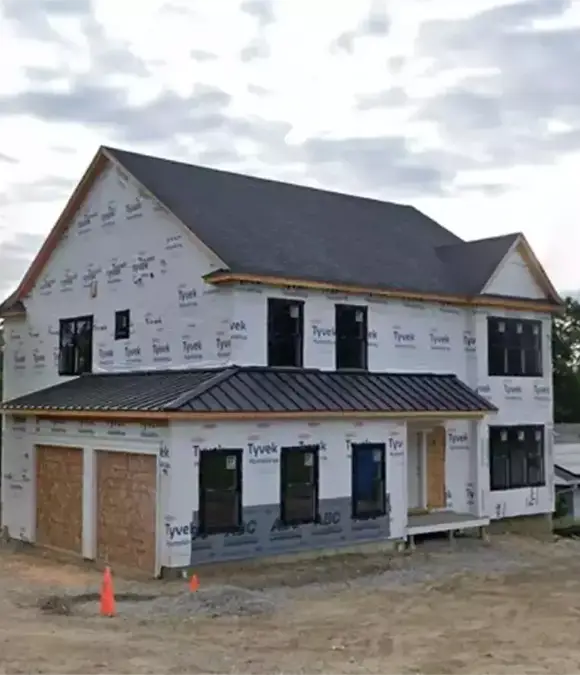
A $1.5 million house that made headlines for being built on a man's land without his permission has now been sold.
Back in 1991, Dr. Daniel Kenigsberg bought a half-acre plot right by his childhood home in Fairfield, US.
He turned down multiple offers - including one in 2022 for $400,000 (£314,000) - as he had the 'long term plan' of passing the property to his 'heirs in the future.'
However, the land ended up being ‘sold’ in October 2022 to Sky Top Partners LLC for $350,000 (£275,000) due to a impersonation scam.
Advert
Kenigsberg was understandably furious as were his neighbours, who called the construction an ‘eyesore’.

The work started without his knowledge. It was only until Kenigsberg's friend called to alert him about the new development in the spring of 2023.
The case became national news as many impersonation scams have popped up around the country.
Admittedly, Kenigsberg 'felt bad for the builder' but most concerns from the residents were about how long the project would take.
CT Insider claimed that the controversial home at 51 Sky Top Terrace has been sold for a whopping $1.45 million (£1.2 million) after a settlement was reached.
The developers of the pricey home claim they were scammed by someone impersonating the landowner.
Reportedly, the scammer used Johannesburg, South Africa for their address and made a fake passport in Kenigsberg’s name, which had the wrong birthday and photo. Kenigsberg also admitted to never living or even going to South Africa.
Terms of the settlement from this case haven’t been disclosed but Kenigsberg reportedly received a payment. The fraud case was initially investigated by Fairfield’s police department, which later handed it over to the FBI - it remains unsolved.

You might think it's quite difficult to build on someone else's property however, it's quite easy to pose as a landowner, according to consumer protection lawyer Kevin Kneupper.
'It's really easy to go find who owns land. If you've never done searches on this, in most counties, you can actually just go, it depends on your state,' he explained.
'But in many places, you just search online, they'll have databases, so they could find out real easily who's the actual owner and then just pretend to be him.'
Kneupper clarified that Kenigsberg and his attorney aren’t accusing the buyers of being involved, but believe someone in South Africa orchestrated the scam.
'And that's who the police are trying to go after to find where the money actually went to when they paid for it,' Kneupper concluded.